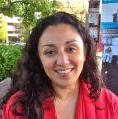Human Behavioral Ecology and the City
When I began to pursue anthropology seriously as an undergraduate, I envisioned myself doing fieldwork. At that time, I pictured a remote village with elders sitting around the fire, children running freely, and men sharing stories of the day’s hunt.
Sound familiar? Anthropology has a long history of interest in the world’s indigenous peoples and evolutionary anthropologists continue to focus primarily on subsistence-based societies. Populations in which survival and reproduction are least mediated by technological and medical innovations are thought to present the clearest portrait of how natural selection shapes behavioral strategies and reproductive outcomes.
However, as evidenced by this year’s sessions at the AAA meeting, evolutionary anthropologists are increasingly interested in applying evolutionary logic in “modernized” contexts. My work takes up that theme in Salvador da Bahia, the third largest city in Brazil. Instead of a village, my fieldwork takes place in hilly favelas – mazes of narrow alleys and staircases built out of rubber tires. My informants don’t congregate around the fire, but rather the corner bar.
This scenario is familiar to urban anthropologists who have studied neoliberalism, migration, and socioeconomic inequality in urban centers for over 30 years. Yet there are few evolutionary anthropologists conducting ethnographic fieldwork in cities. When I first planned my project, I found little to prepare me for both the difficulties and rewards of doing research in the busy chaos of a metropolitan area. With the advantage of hindsight, a few things come to mind as unique features of urban fieldwork.
Finding Informants
In the theoretical village, one sees and is easily seen. The anthropologist’s long-term presence is enough to enable participant observation. In contrast, in my fieldwork, most people had regular work schedules, so meetings were always arranged in advance. It was not uncommon to arrive at an appointment to discover that an interviewee had forgotten our meeting and gone out. Locating people around a large city meant that a good chunk of time and money was spent on public transportation. The city also demanded constant work to develop and maintain relationships given the relatively few opportunities for chance encounters or spontaneous discussions. My first visits, usually at people’s homes, sometimes felt more “staged” and less “natural” than I had anticipated. Although this eventually changed, the pace and privacy of urban life meant that I was not always privy to participants’ everyday activities.
Idea Exchange
On the other hand, working in a city meant that the traditional asymmetries between researchers and participants were less clearly delineated than I had expected, making it easier to find common ground. In my case, having grown up in Mexico, discussing famous singers or the merits of imported and domestic telenovelas became frequent conversation openers. I also found that certain methodologies, such as written surveys, were both efficient means of obtaining information and acceptable to participants. Large cities also mean that university facilities are available, facilitating international collaborations and student training that do much to enhance cross-fertilization.
Everyday Life
Few do their research in well-to-do urban areas. As a foreigner who spent most of her time in anonymous slums where violence is part of everyday life, I sometimes felt exposed and vulnerable. I was lucky to find caring people who helped me take the necessary precautions, but the possibility of being a victim of crime is never too distant. On the other hand, the city also offers the possibility to “disconnect” from the field without ever having to leave it. I remember how an occasional solo restaurant meal, concert, or evening spent writing up notes in a café offered invaluable time for disengagement and reflection.
Over 50% of the world’s population now live in cities. This number is set to increase over the next few decades. To move our discipline into the future, it will be important to consider how explanations of human behavior applied fruitfully to hunter-gatherers, pastoralists, and even college students pertain to the largest but least explored population: non-Western urban dwellers. I hope this column has shed some light on a few of the associated logistical issues.
Montserrat Soler conducts research in Salvador da Bahia, Brazil. She is interested in the evolution of religion and cooperation and is currently lecturer and assistant researcher in the anthropology department at UC-Santa Barbara.
